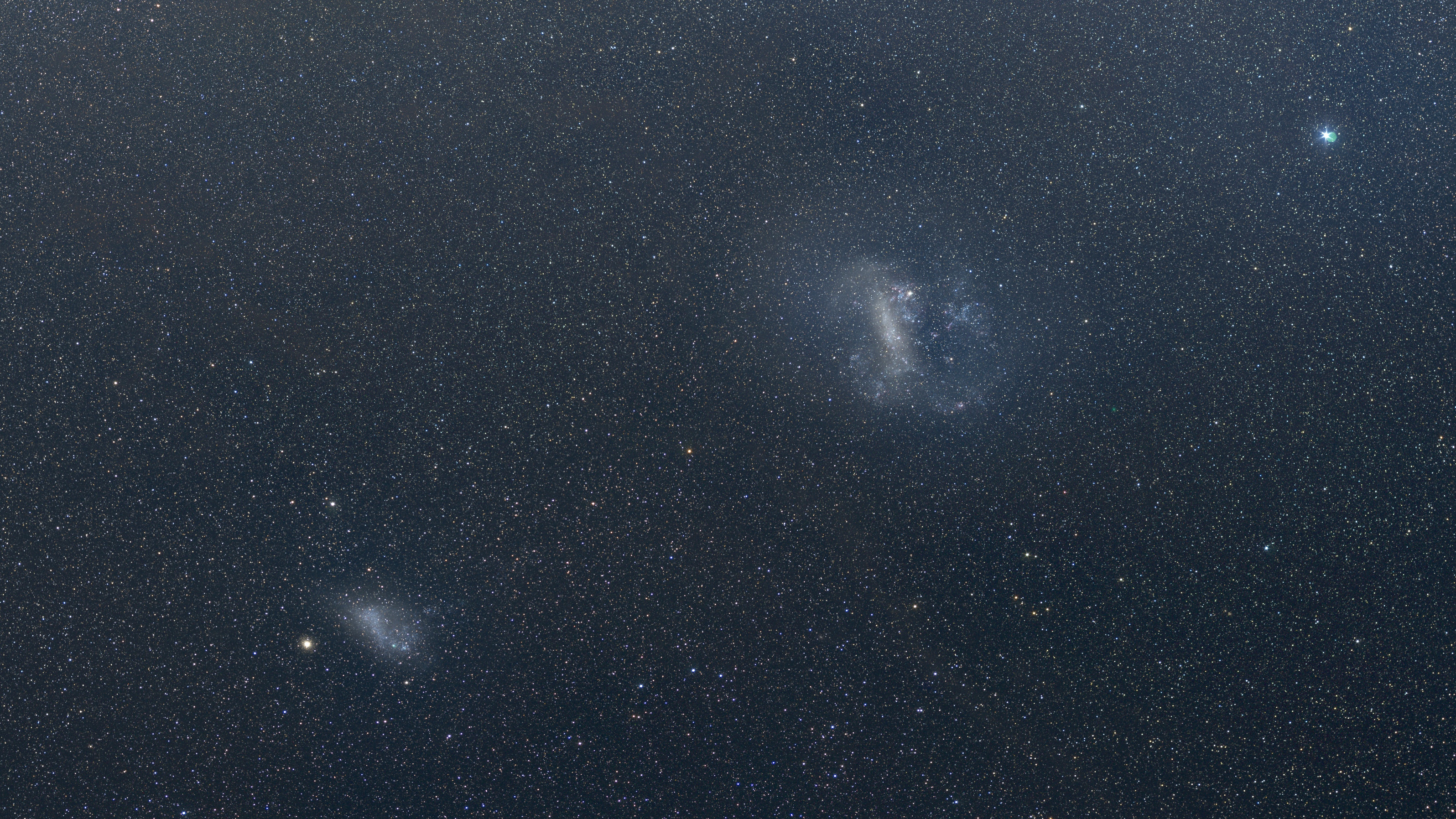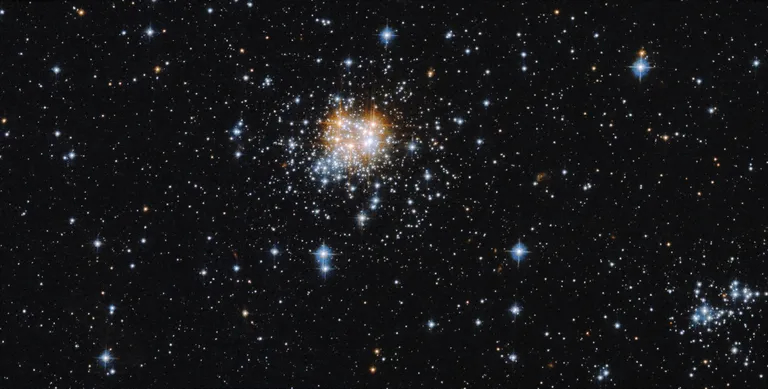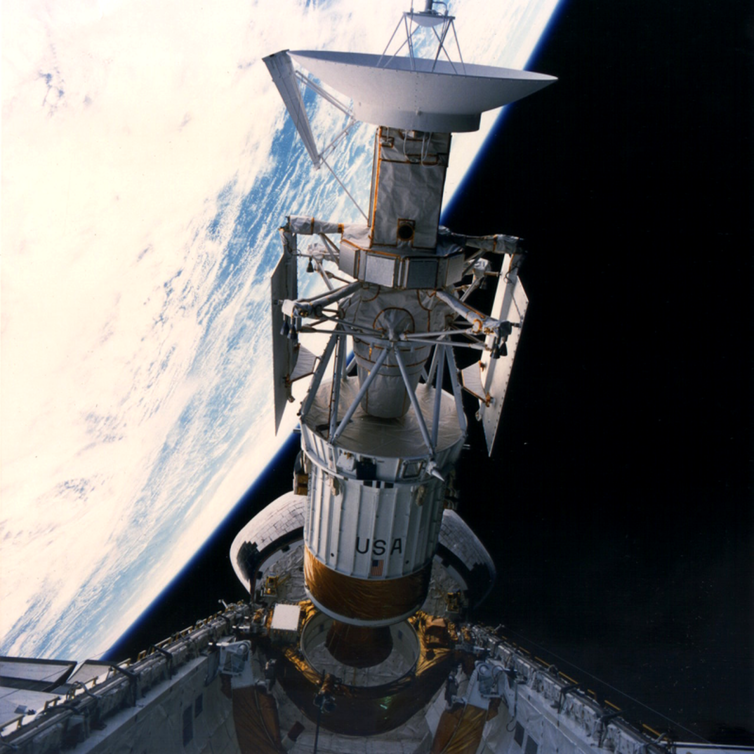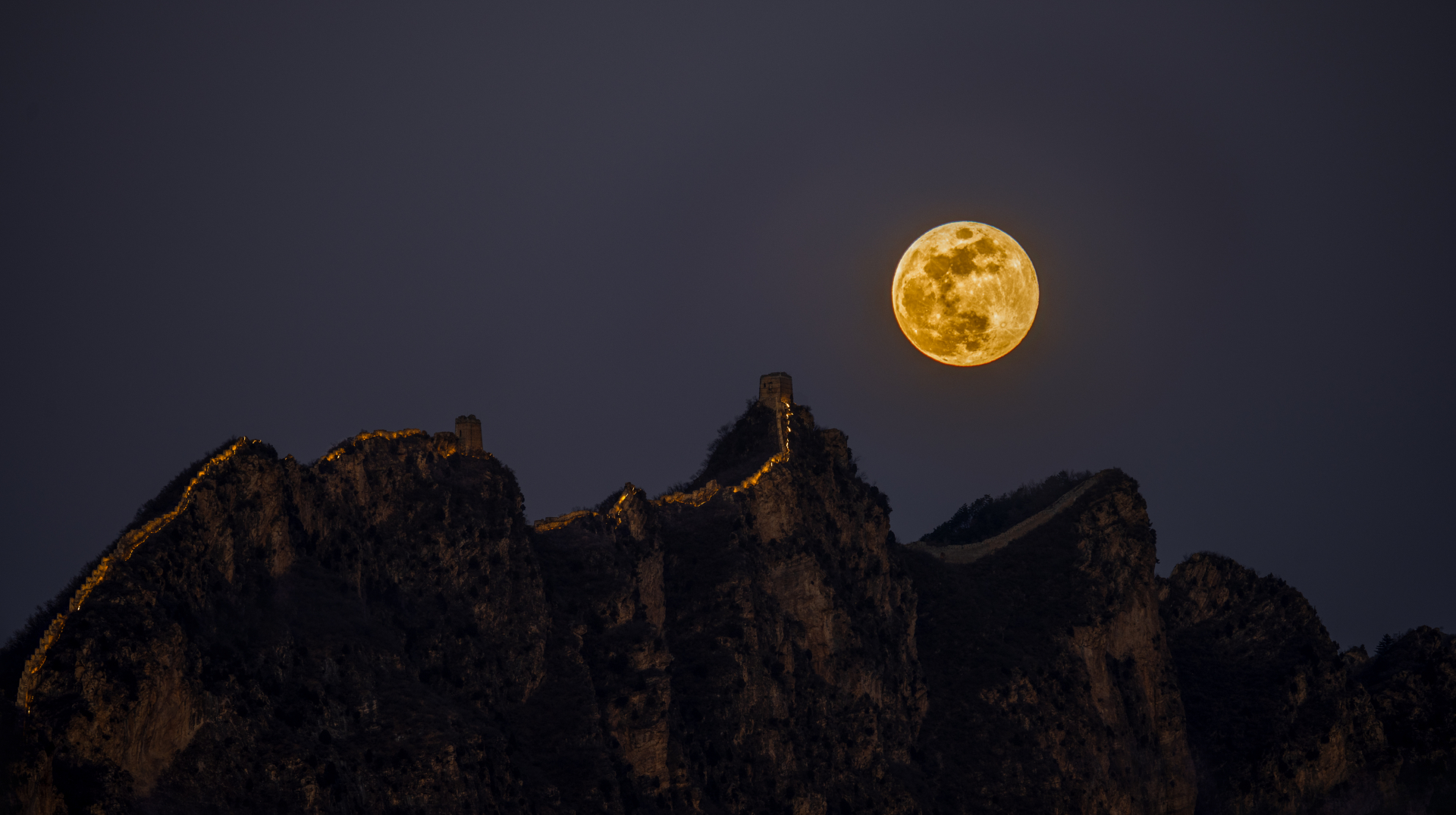The Magellanic Clouds must be renamed, astronomers say
Ferdinand Magellan, who murdered and enslaved indigenous people, was not an astronomer nor the clouds' discoverer.

In September, astronomer Mia de los Reyes published an op-ed in the journal APS Physics, representing a coalition of astronomers calling for the renaming of two iconic, deeply studied and shining irregular galaxies near the Milky Way. One of these star-studded realms is named the Large Magellanic Cloud and the other, for reasons you'd probably expect, is named the Small Magellanic Cloud. But most importantly, what these two satellite galaxies have in common is they're named after Ferdinand Magellan.
Among other things, Magellan has gone down in history as the Portuguese explorer who murdered, enslaved and burned the homes of indigenous people while setting out to be the first person to circumnavigate the globe. As de los Reyes' article states, a first-hand account of Magellan's journey describes how he enslaved the native Teluche people, for instance, who lived in what is now Argentina, and placed iron manacles on the "youngest and best proportioned men." He's also recorded to have set entire villages ablaze in the region we now call Guam.
Magellan had his own personal slave as well, Enrique de Malacca, who he'd purchased before the journey and relied on to interpret indigenous languages — in fact, experts argue Enrique de Malacca's presence on the trip technically made him the first person to circumnavigate the globe after Magellan was killed in a fight with islanders in the Philippines. "Lapu-Lapu, the Mactan ruler whose forces killed Magellan, is often credited with slaying the explorer after run-ins with indigenous locals," according to National Geographic, though it's possible he didn't literally do the deed himself. Still, "as a result, [Lapu-Lapu] has become a national hero in the Philippines."
Related: It's official: NASA won't rename James Webb Space Telescope
So, knowing all this, the recently-announced coalition finds no reason Magellan, who was also not an astronomer, should be the namesake of the LMC and SMC. "This particular topic is something I’ve thought about since learning about these galaxies," de los Reyes, who is an assistant professor of astronomy at Amherst College, told Space.com. "I’m Filipino-American, and Magellan is an infamous figure in Filipino history, so this has always been at the back of my mind."
And beyond being "a colonizer, a slaver and a murderer," as de los Reyes writes in the op-ed, astronomers also agree he was not even the first to identify these clouds.
"Magellan was murderous and awful but that isn’t the primary issue," David W. Hogg, a professor of physics and data science at New York University and Group Leader for astronomical data at the Flatiron Institute, told Space.com. "The primary issue is that the clouds aren’t his discovery."
Breaking space news, the latest updates on rocket launches, skywatching events and more!
The words "Large Magellanic Cloud'' and "Small Magellanic Cloud" are incredibly common in the field of astronomy, as these sparkling realms are considered some of the best cosmic laboratories in which to study star formation. Not only are the Clouds teeming with stellar bodies, but because they sit so close to our galaxy, scientists are even able to investigate individual stars lying within. These satellite galaxies are also the only systems we clearly see hosting star clusters at every stage of evolution; several thousands of peer-reviewed academic articles mention results gleaned from the LMC and SMC.
This also means several thousands of peer-reviewed academic articles refer to Magellan — over 17,000, de los Reyes calculates.
Per a 2020 publication in the European Southern Observatory's journal for science and technology, The Messenger, local populations in South America already knew of these clouds well before Magellan's expedition. The Portuguese called them "Clouds of the Cape," author Michel Dennefeld writes, and scientific circles used the names "Nubecula Minor" and "Nubecula Major." German lawyer and amateur astronomer Johann Bayer, who invented the first modern star atlas "Uranometria" in 1603, also used the latter.
"It turns out that the 'Magellanic' name wasn't even widely attached to these galaxies until well into the 1800's, which was centuries after Magellan's expedition," Sally Oey, a professor of astronomy at the University of Michigan, told Space.com.
"Pretty much every astronomer I've talked to is supportive; criticisms seem to be primarily from a vocal minority of the general public," de los Reyes said. "I've gotten a few emails from folks — who don't appear to be astronomers — telling me to 'go back to doing science,' or that this is 'woke-ism' — that kind of thing.
"It doesn't seem to occur to these folks that nomenclature is part of science."
One of the more recent, and highly publicized, requests to rename an astronomy-related object concerns the James Webb Space Telescope. In March of 2021, several months before the JWST launched to space, scientists published an article in Scientific American about the alleged backstory of the telescope's namesake, James Webb, who ran NASA between February 1961 to October 1968.
In the article, authors write that Webb was in part responsible for a policy that allowed for the purging of LGBT individuals from the workforce, an event now dubbed "The Lavender Scare." In an 87-page report, NASA described its own investigation into the subject as a response. The agency found "no available evidence directly links Webb to any actions or follow-up related to the firing of individuals for their sexual orientation," according to an official statement. The name was not changed.
"If we're going to fault James Webb for the Lavender Scare, we would have to change the names of a lot of things and a lot of buildings," University of South Florida historian David Johnson, who wrote a book about the Lavender Scare, told Space.com following the report, highlighting NASA's Johnson and Kennedy space centers. "None of these people were particularly active in persecuting homosexuals, but just like Webb, they were there when this policy was in effect."
In the APS piece, de los Reyes writes about nuances of the JWST's renaming as well, stating "there will always be complications in naming monuments or facilities after individuals."
In a letter to the American Astronomical Society, following the JWST naming conclusion, current NASA administrator Bill Nelson said the agency is updating the processes of naming missions and buildings.
"People are not perfect," de los Reyes said, "and societal standards will change."
It's also worth mentioning that many astronomical items besides the LMC and SMC are named after Magellan, including a lunar crater and Martian crater named "Magalhaens" as well as NASA's Magellan mission that launched a spacecraft to Venus in the '80s.
One idea to get around the naming issue, de los Reyes says, is to stop naming things after people altogether and take a note from Mars rovers, named after ideals: Perseverance, Opportunity, Curiosity, Sojourner and Spirit.
"The other option," she says, "is to name things after people who, to the best of our knowledge, embody the values that we as a society currently uphold, and to accept that as our society progresses (which is a good thing!) we will likely need to revisit these names."
And the next generation of scientists, it would appear, will likely be attuned to these types of topics. De los Reyes says students in her astronomy classes are starting to ask questions about science that are beyond the theories and numbers, surrounding things like "What communities do we interface with and impact as we do science?" and "What historical and societal structures enable us to do science?"
"One of my students actually found my op-ed, thought it was interesting, and sent me a link without realizing that I wrote it!" she said. "I do think many students, and early career researchers in general, are more open to thinking about the ways that astronomy as a field and astronomers as people interact with broader society."
De los Reyes says that there are currently about 50 people in the coalition's core mailing list, but the group continues to garner more support by the day. "I can’t imagine how any astronomer could object to the renaming of the clouds," Hogg said," since there is absolutely no sense in which Magellan is in any way responsible for their discovery."
And, though there isn't a public petition for the name change yet, de los Reyes says the cadre will soon be pushing for a resolution with the International Astronomical Union.
"It turns out that getting astronomers to support changing the names is pretty easy, but getting them to agree on a new name is harder!" she said. "We plan to suggest several options for the IAU to vote on."
Some of those options could perhaps be to return to calling the LMC and SMC by the names Nubecula Major and Nubecula Minor, respectively, or inventing a Mars rover-esque tenet. De los Reyes, however, believes the easiest way is to probably just pick a new "M" word so scientists can continue using the acronyms LMC and SMC. "Meridional," meaning "of or related to the Southern Hemisphere," might be a good one, she said, or "Milky," referring to the Clouds' association with the Milky Way."
"This is not a new topic," de los Reyes said. "Other astronomers have been thinking about this since before I even entered the field, but I think the time wasn’t quite right to have this discussion. In the past few years, people have been having more discussions about renaming — not just in astronomy, but also in broader society — and we have more momentum now."
"One of the main hurdles is that people can feel attached to tradition," Oey said, but "this name doesn't have a very long tradition."
"There really isn't a strong reason to keep the name, other than convenience."

Monisha Ravisetti is Space.com's Astronomy Editor. She covers black holes, star explosions, gravitational waves, exoplanet discoveries and other enigmas hidden across the fabric of space and time. Previously, she was a science writer at CNET, and before that, reported for The Academic Times. Prior to becoming a writer, she was an immunology researcher at Weill Cornell Medical Center in New York. She graduated from New York University in 2018 with a B.A. in philosophy, physics and chemistry. She spends too much time playing online chess. Her favorite planet is Earth.



